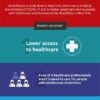Current smokers faced nearly three times the risk of premature death from cardiovascular disease compared with people who never smoked, with the risk being higher among those who began smoking during childhood, according to new research published today in the Journal of the American Heart Association, an open access journal of the American Heart Association.
Smoking continues to cause an estimated 100,000 deaths from cardiovascular disease every year in the U.S. Currently, there are about 25 million people who smoke daily including 5 million who became regular smokers before the age of 15.
Earlier research in Cuba found a correlation between childhood smoking and a higher risk for premature death overall. In this new study, investigators set out to determine if the findings were generalizable in other populations by conducting a similar analysis of U.S. data focused on death from cardiovascular disease.
“It was surprising to see how consistent these findings were with our earlier research and with other studies from around the world, including from the U.K., Australia and Japan, among others, both in terms of the substantial risks associated with smoking and with the health benefits of quitting smoking,” said lead study author Blake Thomson, M.Phil., D.Phil., an epidemiologist at the University of Oxford in Oxford, England. “The age at which a person begins smoking is an important and often overlooked factor, and those who start smoking at a young age are at especially high risk of dying prematurely from cardiovascular disease. However, quitting can substantially reduce that risk, especially for those who quit at younger ages. Getting people to quit smoking remains one of the greatest health priorities globally.”
Using data collected between 1997 and 2014, from the annual U.S. National Health Interview Survey, researchers examined the medical histories, lifestyle habits and demographics of smokers and nonsmokers. The study included 390,929 adults, ages 25 to 74 years (average age of 47), 56% female. Occasional smokers were excluded from the study. Current smokers were grouped by the age at which they began smoking.
During the follow-up period, 4,479 people died before the age of 75 from heart disease or stroke. After adjusting for potential confounding variables, such as age, education, alcohol consumption, region and race, researchers found:
58% were never smokers; 23% were ex-smokers; and 19% were current smokers;Among current smokers, 2% had started smoking before age 10, and 19% began smoking between ages 10 and 14; andThose who quit smoking by the age of 40 reduced their excess risk of premature death from cardiovascular disease by about 90%.
Quitting smoking at any age offered benefits, and the earlier a person quit, the better, according to the findings. The analysis found that when compared to peers who had never smoked:
Smokers who quit between ages 15 to 34 had about the same risk of dying from heart disease or stroke;Those who quit between ages 35 to 44 had about a 20% higher risk;Those who quit between ages 45 to 54 had about a 60% higher risk;Those who quit between ages 55 to 64 had about a 70% higher risk of death from heart disease or stroke; andThose who were current smokers had nearly three times the risk of dying prematurely from heart disease or stroke.
“Preventing the next generation from smoking can save lives, but we must also emphasize that quitting smoking can save lives now, and in the years to come,” said Thomson. “Simply put, health policies should aim to prevent young people from smoking and should clearly communicate the benefits of quitting to those who do smoke, ideally as young as possible, and before the onset of serious illness.”
“This study adds to the body of evidence that starting to smoke at younger ages can significantly increase the risk of death from cardiovascular disease. It validates the American Heart Association’s position that smoking is a serious health hazard, that effective multi-episode counseling and medical therapies for cessation should be available to all and that stopping smoking should be an urgent priority for smokers of all ages, especially the young,” said Rose Marie Robertson, M.D., FAHA, deputy chief science and medical officer of the Association.
“This data precedes the explosion in e-cigarette use in the U.S., and similar long-term outcomes from vaping can only be assessed over time. However, health risks have begun to emerge, and we know that vaping among teens is a precursor to smoking combustible cigarettes for many,” said Robertson, who is also co-director of the Association’s Tobacco Center of Regulatory Science.
Thomson said more research is needed to better clarify the mechanisms by which prolonged smoking from childhood affects cardiovascular risk. Future research should also further examine the association between early smoking initiation and death from other causes, such as respiratory diseases and cancers, and in other populations.
If you smoke, now is a very good time to quit
More information:
Journal of the American Heart Association (2020). DOI: 10.1161/JAHA.120.018431
Provided by
American Heart Association
Citation:
Smokers, especially those who begin young, are three times more likely to die prematurely (2020, October 28)
retrieved 28 October 2020
from https://medicalxpress.com/news/2020-10-smokers-young-die-prematurely.html
This document is subject to copyright. Apart from any fair dealing for the purpose of private study or research, no
part may be reproduced without the written permission. The content is provided for information purposes only.



